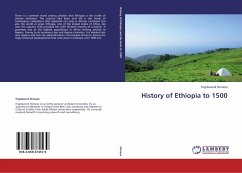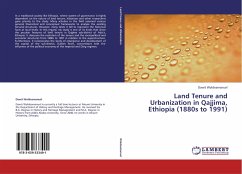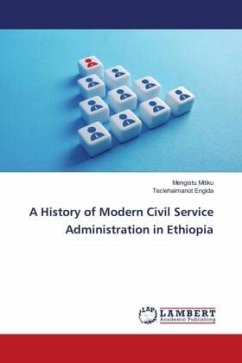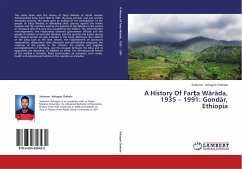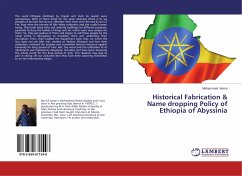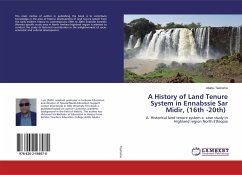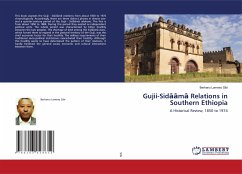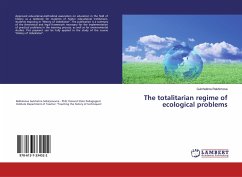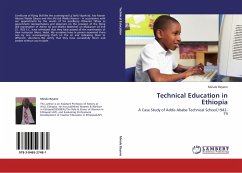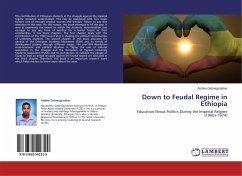
Down to Feudal Regime in Ethiopia
Education Nexus Politics During the Imperial Regime (1960s-1974)
Versandkostenfrei!
Versandfertig in 6-10 Tagen
36,99 €
inkl. MwSt.

PAYBACK Punkte
18 °P sammeln!
The contribution of Ethiopian students in the struggle against the imperial regime remained understudied. This may be associated with two major factors: lack of enough original sources and scholars' failure to pay due attention to this issue. For this reason, this book attempts to fill this gap. It aims at examining the extent to which the students' determination and courage to pay any form of sacrifice for a better future of their communities. It has three chapters. The first chapter deals with the contribution of the 1960 coup d'état in shaping the political consciousness of university stud...
The contribution of Ethiopian students in the struggle against the imperial regime remained understudied. This may be associated with two major factors: lack of enough original sources and scholars' failure to pay due attention to this issue. For this reason, this book attempts to fill this gap. It aims at examining the extent to which the students' determination and courage to pay any form of sacrifice for a better future of their communities. It has three chapters. The first chapter deals with the contribution of the 1960 coup d'état in shaping the political consciousness of university students. The second chapter of this book discusses the genesis of the Ethiopian Students Movement (ESM) and its trends of development passing through different stages. The pre-1974 Revolution socio-economic and political situation in Tigray, the role of cultural association in the struggle and the formation of Tigrean University Students Association (TUSA) and its contribution to mobilize the people of Tigray to lead an armed struggle against the feudal regime are discussed in the third chapter. Therefore, this book is an important research work which helps readers to know more about the issue.




